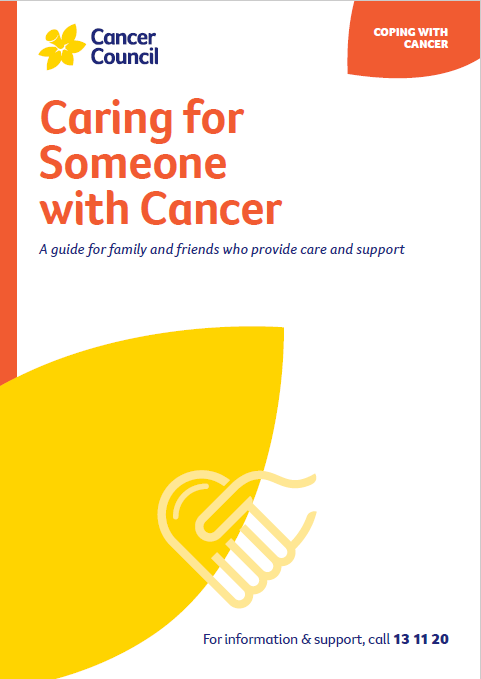- Home
- About Cancer
- Supporting someone with cancer
- Caring for someone with cancer
- Caring for yourself
- Taking a break (respite care)
Taking a break (respite care)
Respite care lets carers have a break. You may feel you need respite care for a couple of hours, overnight or for several days. You can use respite care for any reason, such as visiting friends or family members, catching up on sleep, or attending an event such as a wedding.
| Why | Some carers don’t arrange respite care because they feel guilty or concerned about leaving the person they are caring for. But by taking a break, you will probably find that you can continue your caring role with more energy and enthusiasm. It also gives the person you are caring for an opportunity to interact with other people. |
| Where | Respite care can sometimes be given at home, or the person you are caring for may be admitted to a respite care centre, residential aged care facility or, in some cases, a hospital or palliative care unit (hospice). |
| How | It’s a good idea to start looking into respite care before you need it. Talk to your doctor or social worker about what services are available where you live and how you can access them. Carer Gateway provides information on respite options, including emergency respite. For more information, call 1800 422 737. |
| Cost | You may have to pay part or all of the cost of respite care. Fees will depend on the care provider, whether the care is subsidised by the government, how long the care is for, and the type of care required. |
→ READ MORE: Working while caring
The social worker helped my husband and me talk about difficult and confronting issues. The respite care was also a welcome relief and helped me remain strong.
Janine
Podcast: Cancer Affects the Carer Too
Listen to more episodes from our podcast for people affected by cancer
More resources
Dr Alison White, Palliative Medicine Specialist, Royal Perth Hospital, WA; Tracey Bilson, Consumer; Louise Dillon, Consumer; Louise Durham, Nurse Practitioner, Palliative Care Outpatients, Princess Alexandra Hospital, QLD; Katrina Elias, Carers Program, South Western Sydney Local Health District, NSW Health, NSW; Jessica Elliott, Social Worker, Youth Cancer Services, Crown Princess Mary Cancer Centre, Westmead Hospital, NSW; Brendan Myhill, Social Worker and Bereavement Research Officer, Concord Repatriation General Hospital, NSW; Penny Neller, Project Coordinator, National Palliative Care Projects, Australian Centre for Health Law Research, Queensland University of Technology, QLD; Olivia Palac, Acting Assistant Director, Occupational Therapy, Gold Coast University Hospital, QLD; Nicole Rampton, Advanced Occupational Therapist, Cancer Services, Gold Coast University Hospital, QLD; Shirley Roberts, Nurse Consultant, Medical Oncology, Northern Adelaide Cancer Centre, SA; Dr Elysia Thornton-Benko, Specialist General Practitioner, and UNSW Research Fellow, NSW; Kathleen Wilkins, Consumer; Helen Zahra, Carers Program, South Western Sydney Local Health District, NSW Health, NSW.
View the Cancer Council NSW editorial policy.
View all publications or call 13 11 20 for free printed copies.

